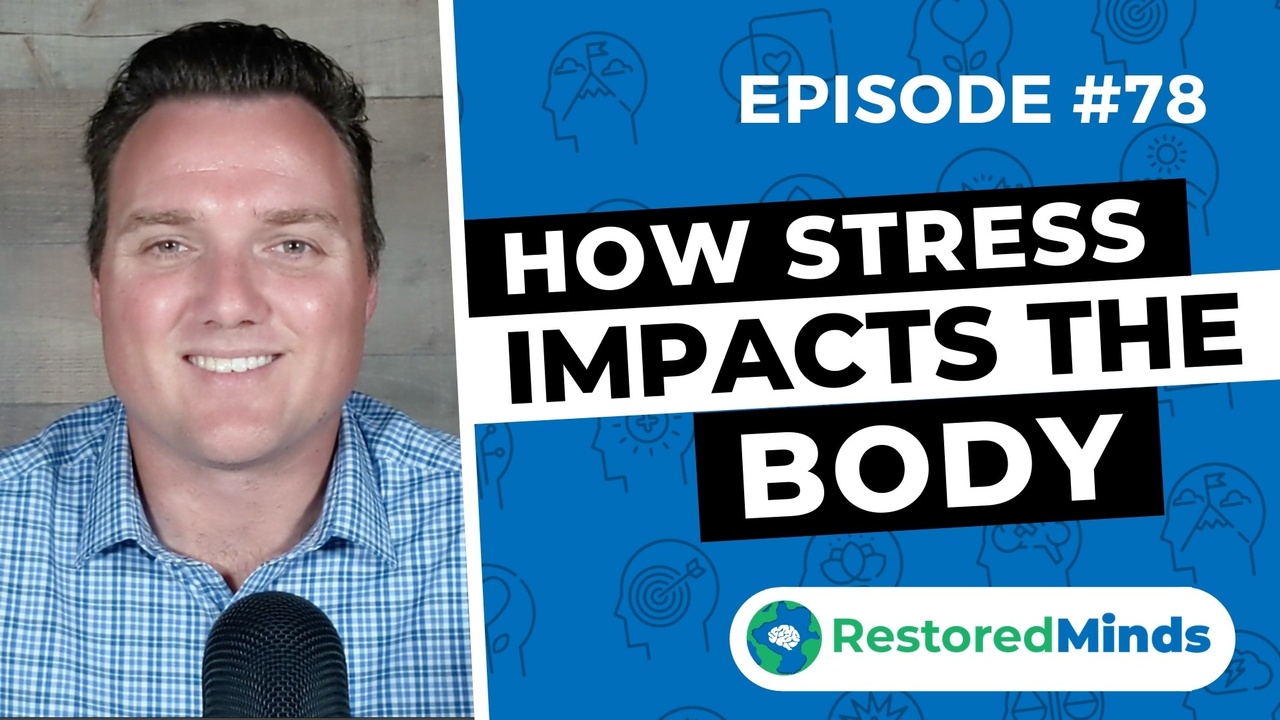How Stress Impacts The Body
Mar 18, 2021
Understanding How Stress Impacts the Body
The Three Types of Stress
Matt begins the discussion by explaining the three types of stress: acute, episodic, and chronic. Acute stress is short-term and often caused by specific events. Episodic stress occurs when someone frequently experiences acute stress. Chronic stress is long-term and can be harmful if not managed properly. The focus of this episode is on chronic stress and its adverse effects on our physical health.
The Modern-Day Stress Dilemma
In today's fast-paced society, many of us live in a constant state of low-level stress. While we may not be facing life-or-death situations frequently, the accumulation of daily stressors—work demands, relationships, financial pressures, and even social media—can result in a perpetual state of stress. Matt emphasizes the importance of identifying these stressors and learning how to navigate them effectively.
The Fight or Flight Response
Matt explains the fight or flight response, a survival mechanism that prepares our bodies to face threats. When activated, this response intensifies our awareness and pumps blood into our major extremities. While this is beneficial in short-term scenarios, chronic activation can suppress essential functions like digestion and immune response, leading to various health issues.
Physical Symptoms of Chronic Stress
Chronic stress can manifest in numerous ways, significantly affecting our physical health. Matt highlights several symptoms that can indicate elevated stress levels:
-
Digestive Problems
: Chronic stress can slow down digestive functions, leading to conditions like Irritable Bowel Syndrome (IBS).
-
Heart Issues
: The constant pumping of blood can result in high blood pressure and clogged arteries.
-
Reduced Libido
: Stress can suppress sexual drive as the body prioritizes survival over reproduction.
The Whole Health Approach
At Restored Minds, we believe in addressing health holistically. Matt emphasizes that mental health, physical health, emotional health, and spiritual health are interconnected. Neglecting one aspect can adversely impact the others. Therefore, learning to manage stress effectively is crucial for overall well-being.
Coping Mechanisms: Short-term vs. Long-term Solutions
Many people turn to short-term solutions like alcohol or marijuana to cope with stress. While these may provide temporary relief, they do not address the root cause and can even exacerbate stress in the long run. Matt advocates for healthier, long-term coping mechanisms that promote mental and physical well-being.


